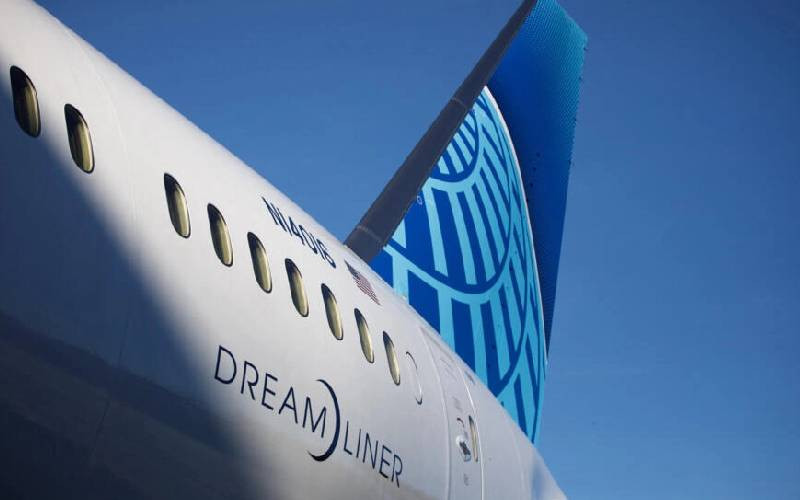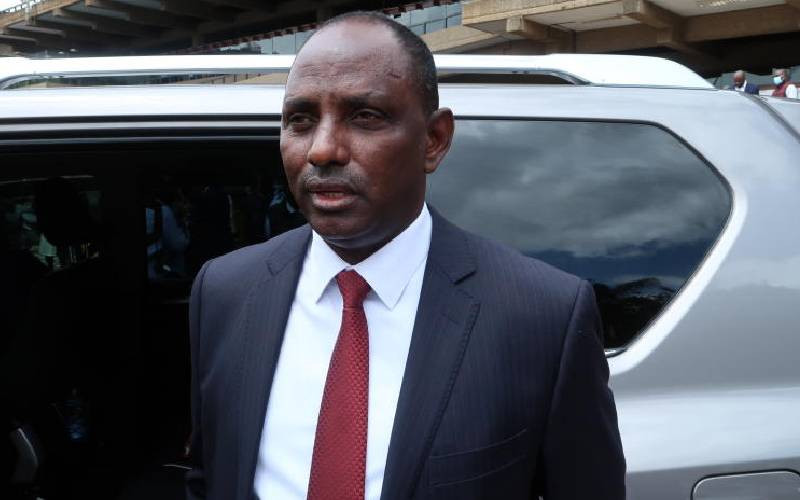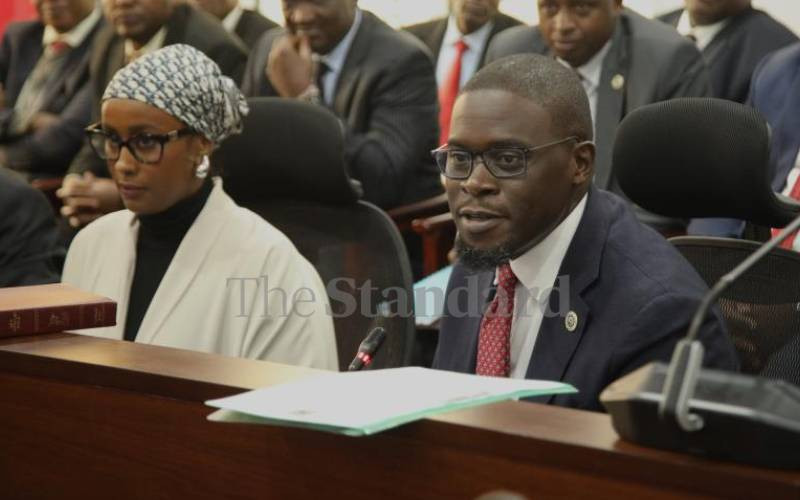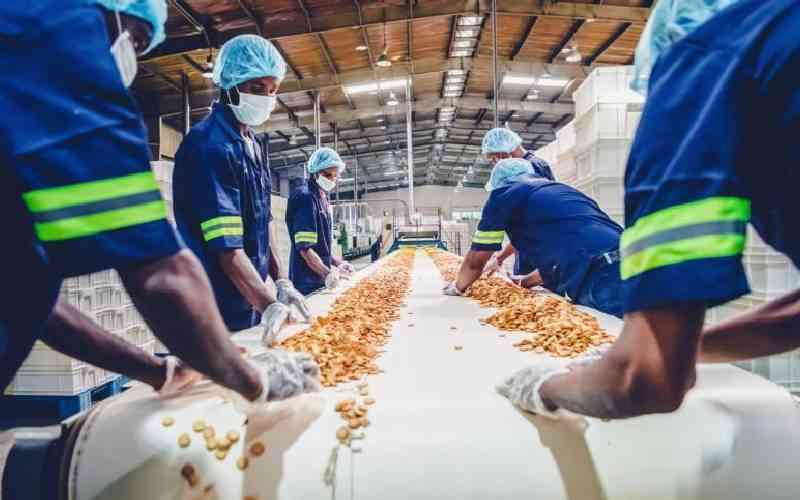Daggers have been drawn at Central Bank of Kenya (CBK) over a lucrative Sh25 billion contract to print new generation currency, The Standard on Sunday can report.
At the same time, local politically connected cartels and foreign multinationals are locked in a vicious battle to defeat Government’s efforts to lower the price of printing the currency. The contract to print the new notes has split the top bosses at CBK right down the middle as they jostle and lobby on behalf of interested parties and multinationals.
The fighting comes as CBK races against time to beat a constitutional requirement to phase out old generation notes by August 2015. The Constitution requires that by August next year, all notes should bear Kenya’s physical features and not the image of the first President Jomo Kenyatta, as is today.
The cartels have virtually stopped Government from buying a stake in a company that currently prints the currency. With the avowed aim of bringing down the cost of printing money, the Cabinet in 2009 resolved that the Government buys 40 per cent shareholding in De La Rue, which has been printing currency for the CBK.
But local cartels with strong political networks frustrated this process because if the deal went through, they could no longer pitch for their companies or other associates to undertake future contracts. Meanwhile, afraid that the constitutional deadline to phase out old notes may not be met, CBK proceeded to float an international tender to cover itself.
Governor vs managers
Four companies from the US, UK, France and Germany, among them De La Rue, submitted bids for designs for the new generation currency on Thursday at CBK. The contract is yet to be awarded. However, the High Court had on Monday dismissed a case filed by a lobby group and a private citizen that had sought to challenge the manner in which the Government intended to purchase a stake in De La Rue.
In her ruling, Justice Mumbi Ngugi said Kituo cha Sheria and Charles Kioko had no grounds to stop the Government from buying the stake in De La Rue.
“In the absence of evidence that the decision alleged to have been made on the basis of a Cabinet memo was made at all, or was made without input from Central Bank, it is difficult to see a basis on which the court can declare the said decision null and void,” the judge said.
The ruling paved the way for the Government to continue with its plans to purchase 40 per cent shares in De La Rue. However, it ignited a battle between CBK Governor Njuguna Ndung’u and his senior managers. Prof Ndung’u is adamant that the Cabinet decision has to be respected to the letter but a team of other senior officers are pushing for the contract to go to a French company.
So powerful are the cartels that they have not only managed to tie down the entire Government in regard to currency printing for over three years now, but also want the budgetary allocation for the contract increased.
Apart from awarding the contract to a French firm, the cartels, in partnership with senor officers from the bank, are also pushing that the contract be increased to Sh34.5 billion.
A top source at CBK told The Standard on Sunday that the contract had created so much animosity that some officers no longer see eye to eye.
“It is about time the Government took a firm position on these cartels. How can somebody or a group of people hold the country to ransom for over three years just because they want to make billions yet these are people known to Government?” posed Senate Majority Whip Beatrice Elachi.
Stay informed. Subscribe to our newsletter
Investments Secretary Esther Koimet, who was among the top State officers who negotiated the Government’s 40 per cent share in De La Rue, could not hide her frustrations. “By the time we were going to Parliament to explain the progress to the relevant committee, this process had been completed in terms of preparation,” Koimet said.
“We haven’t made progress since then. The Government has not bought the shares as proposed.”
“This is big money. Some people wanted the management to work with them in ensuring the company gets the job. It would appear that some officers agreed because they have been pushing the said company, but the governor and his team, especially those in security department, refused. That’s where the battle started. It has been ongoing and has divided the institution into two,” said a source at CBK’s procurement department.
Mysterious people
Senator Bonny Khalwale, who was the chair of the Pubic Investments Committee which probed the 40 per cent share purchase proposal, said his committee approved the purchase but was worried it would be sabotaged by cartels.
“Next week, I will demand to know from Treasury how much money the taxpayer has lost from the Treasury. The cartels in this country are mysterious people. They have their roots all the way to the Judiciary. Because of the delay in signing the contract as cartels were at work, the taxpayer lost at least Sh1.7 billion,” said Khalwale.
The committee was also worried about the monopoly in pricing if government was no longer going to allow competitive bidding.
“As PAC, we had recommended, and Parliament approved, that CBK was free to get into a joint venture with De La Rue provided that CBK was not tied in the contract. We said so because De La Rue had cleverly said in the contract that should the Government join the company, then De La Rue would exclusively be printing Kenyan currency. Because of lack of competitive bidding, our worry was that De La Rue would have monopoly to determine the price. And the Kenyan taxpayer may end up paying more,” he said.
Suba MP John Mbadi said the cartels have made it impossible for the Government to initiate its most ambitious programmes. “You see, there are two levels of interests both of them very strong. Those who associate themselves with two powerful political outfits. When one cartel wins, it is sabotaged by the other. That explains the chaos you see in big contracts like the CBK one. This is made possible because we have an outdated procurement law. That is where reforms should start,” he said.
 The Standard Group Plc is a
multi-media organization with investments in media platforms spanning newspaper
print operations, television, radio broadcasting, digital and online services. The
Standard Group is recognized as a leading multi-media house in Kenya with a key
influence in matters of national and international interest.
The Standard Group Plc is a
multi-media organization with investments in media platforms spanning newspaper
print operations, television, radio broadcasting, digital and online services. The
Standard Group is recognized as a leading multi-media house in Kenya with a key
influence in matters of national and international interest.
 The Standard Group Plc is a
multi-media organization with investments in media platforms spanning newspaper
print operations, television, radio broadcasting, digital and online services. The
Standard Group is recognized as a leading multi-media house in Kenya with a key
influence in matters of national and international interest.
The Standard Group Plc is a
multi-media organization with investments in media platforms spanning newspaper
print operations, television, radio broadcasting, digital and online services. The
Standard Group is recognized as a leading multi-media house in Kenya with a key
influence in matters of national and international interest.







